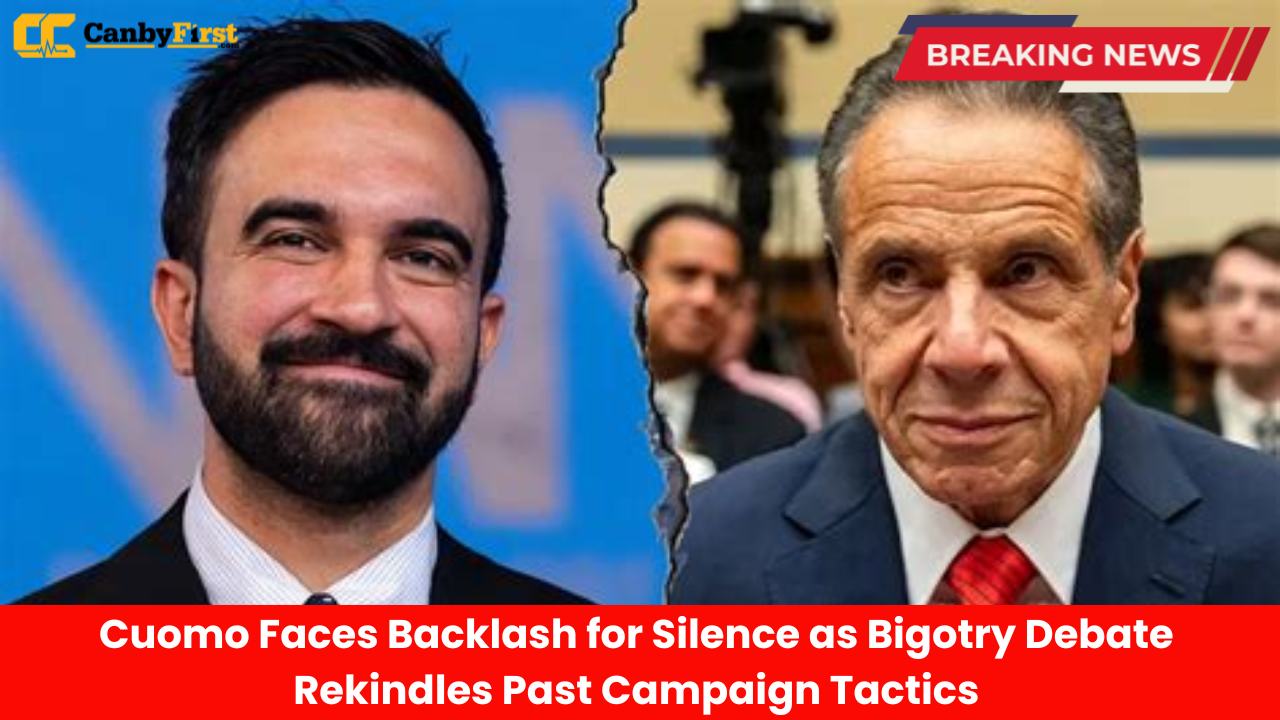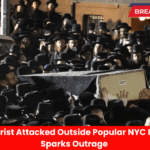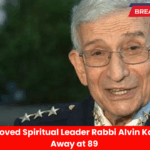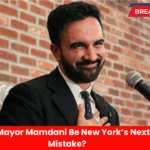New York, US:In the thick of New York’s ever-polarized political atmosphere, former Governor Andrew Cuomo has drawn criticism for what many call his deafening silence on a recent wave of bigoted attacks directed at State Assemblymember Zohran Mamdani. The controversy has not only sparked outrage among progressives and advocacy groups but also revived memories of a very different stance once taken by his father, the late Governor Mario Cuomo, nearly five decades ago.
Modern Controversy: Mamdani Under Fire
Assemblymember Zohran Mamdani, representing Astoria, Queens, has been a vocal advocate for housing justice, Palestine solidarity, and progressive tax reforms. Recently, he has faced a series of personal and political attacks that observers describe as laced with xenophobic and Islamophobic undertones. From online hate campaigns to inflammatory political commentary, Mamdani’s background as the son of Ugandan Indian immigrants and a practicing Muslim has been weaponized against him.
In a political climate increasingly marked by identity-driven discourse, Democrats across New York have publicly called for party leaders to denounce the rhetoric. However, Andrew Cuomo’s apparent refusal to address the issue has stood out. Known for his combative political style and eagerness to re-enter the public sphere after resigning in 2021, Cuomo has been unusually tight-lipped.
Also Read
Silence That Speaks Volumes
Observers and community leaders say Cuomo’s silence sends a message—intentional or not. “When prominent leaders fail to condemn bigotry, it emboldens hate,” said one Queens community organizer at a press rally supporting Mamdani earlier this week. Several Democratic officials, especially younger progressives, see this as emblematic of a rift between the party’s old guard and its emerging, more inclusive base.
Critics argue that Cuomo’s decision not to speak reflects a calculated move to avoid alienating moderate or conservative segments of his political audience as he explores pathways back into the spotlight. Others, however, interpret it as a loss of moral leadership compared to his father’s record.
Lessons from 1977: Mario Cuomo’s Moment
The controversy has inevitably drawn comparisons to 1977, when Mario Cuomo ran for mayor of New York City in a racially tense campaign against Ed Koch. That race became infamous for the “Vote for Cuomo, Not the Homo” graffiti scandal, one of the ugliest moments in the city’s political history.
Rather than ignore the prejudice swirling around his campaign, Mario Cuomo took an active stance to denounce the slurs and disavow anyone using them in his name. His handling of that moment—grappling directly with discrimination—earned him respect across lines of race, religion, and sexuality, even among political opponents.
Political historians note the contrast sharply. “Mario Cuomo believed leadership meant facing bigotry head-on,” said a political science professor at City College of New York. “It’s impossible not to notice how his son’s approach differs in both tone and substance.”
Progressive Voices Demand Accountability
Progressive lawmakers have rallied behind Mamdani, some citing Cuomo’s silence as a failure of leadership in a time when hate incidents against Muslims and South Asians have surged statewide. They emphasize that denunciation from powerful figures is more than symbolic—it shapes public discourse and signals shared values within the party.
“New York has always prided itself on diversity and resilience,” Mamdani said during a recent community event. “But we must remember that silence in the face of hate is complicity.”
Activists in Queens and Brooklyn are planning a series of rallies and forums focused on combating bias in local politics. Many aim to pressure senior Democratic leaders to take clear stances against racial and religious prejudice rather than rely on quiet diplomacy.
Cuomo’s Calculated Reentry into Politics
Andrew Cuomo has been attempting to rehabilitate his public image since stepping down amid a series of misconduct allegations. In recent months, he’s resurfaced through interviews, speeches, and community appearances, signaling aspirations for a potential political comeback. His strategic silence on controversial topics—such as this one—seems intended to keep him within the safe boundaries of centrist appeal.
However, political analysts suggest that in a shifting Democratic landscape, where moral clarity often outweighs tactical neutrality, such silence could prove costly. Younger voters, particularly those energizing the party’s progressive wing, expect leaders to call out discrimination plainly and unequivocally.
Echoes Across Generations
The juxtaposition between father and son reveals more than a contrast of personalities—it reflects a transformation in the Democratic Party itself. Mario Cuomo’s brand of politics married idealism with moral conviction, while Andrew’s has been shaped by pragmatism and control. Yet, in moments of cultural reckoning, the absence of a moral stance can cast as long a shadow as a misstep.
For voters who still remember the Cuomos as a family synonymous with New York leadership, that difference resonates deeply. The elder Cuomo’s legacy of verbal courage remains part of the state’s political folklore, while the younger Cuomo faces questions about whether he still represents — or even understands — the inclusive values that once defined his family’s public service.
The Broader Implication for New York Politics
The Cuomo-Mamdani controversy illuminates a broader struggle within the Democratic Party as New York’s electorate diversifies and generational values evolve. The tension between establishment figures and progressive lawmakers is not just ideological—it’s cultural. Silence, once seen as political restraint, increasingly reads as moral evasion.
As political debates grow more intertwined with questions of race, faith, and identity, public figures must navigate not only policy but also the ethics of presence and speech. In this dynamic, the difference between action and inaction becomes defining. Mario Cuomo understood that decades ago. Whether Andrew Cuomo learns that same lesson remains uncertain.
Conclusion
Andrew Cuomo’s choice to stay silent amid attacks on Zohran Mamdani has stirred more criticism than comfort. While political caution may guide his approach, New Yorkers are confronting a deeper question: what does leadership look like when hate finds a platform? The answer may lie, as history shows, not in silence but in moral courage—the kind Mario Cuomo once embodied and many now wish his son would rediscover.












